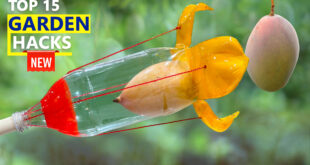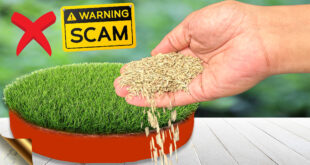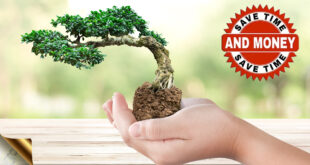Today we will look into 10 very important Rainy season gardening tips and tricks for this year’s wet weather gardening. Simple, yet very important rainy season garden tips and hacks can protect your plants this monsoon.
Rainy season is the best time for beautiful greenery in your garden, whether your backyard, balcony or even terrace garden. The plants are benefited not only by the rains but also the fresh and cool breeze with healthy air circulation around your plants and also the optimum humidity in the air which acts as a boon for our plants.
When it comes to Home gardening, especially container gardening, We will quickly look into 10 simple tips to follow during rainy season:
- THE DRAINAGE SYSTEM: This is the most important task to perform in rainy season. Inspect every container for this. You should see the water flowing out of the drainage holes after a minute of thorough watering. Insert a sharp pointed tool like a screw driver into the drainage hole and make sure it’s open. This is a very important in rainy season because stagnant water can result in root rot and death of your plant and this is the high time for fungus attacks. This stagnation can increase breeding of mosquitoes and diseases like dengue fever and other mosquito borne diseases. Another important tip is to avoid using trays under your pots, at least during rainy season.
- WATERING: Do not water the plants during the monsoon season unless the soil has turned dry or the leaves have started wilting. Remember this line “OVERWATERING IS THE MOST COMMON PLANT KILLER AND NOT UNDER WATERING”.
- SOIL: A well draining soil is indispensable for your plants specially in rainy season. What is a Well Draining Soil?
A Well-drained soil is a soil where water drains out at a medium rate – neither too quickly nor too slowly. We all know that, If the soil is too wet, plant roots fail to get the oxygen they need and they tend to rot and the plant dies. A perfectly well draining soil can be assessed by a Simple Test: When you thoroughly water your container, it should drain out from the drainage hole in about 1 to 2 minutes, neither quicker nor too late. - Earthworms: the gardener’s best friends and also called as Robots of Garden. This is the time when they are found maximum and if you find them concentrated at one container, you can pick them up and spread them around the garden to allow best fertilisation of soil at multiple places.
- Protect Young Plants like Saplings and seedlings from Rain. Tender young plants like seedlings and saplings which are too fragile should be sheltered adequately to protect them from the rains.
- Frogs and toads: These animals should be allowed in the garden during the monsoon. These are insect eaters and help the garden to be free from these insects – that’s one method of biological pest control.
- Pruning and deadheading is important just before monsoon for most plants. This helps the fresh shoots to grow and increase branching and growth.
- Fertilizers: It is always better to use natural fertilizers than chemicals for plants during monsoon. Also the fertilizer requirement increases during this season, firsty because this is a growth season for most plants. Then secondly, because of rain, there is frequent wash out of applied fertilizers. Slow release fertilizers like Cow dung manure has been proven to be the best manure for plants. You can also use home compost or vermicompost. You can also use foliar feeding or foliar spray to feed plants quickly for any deficiencies. During the monsoon season, the stomata or pores in the plants open up and spraying the fertiliser helps the plants to absorb them immediately.
- For ground gardening, preparing raised beds is so beneficial, water will never stagnate. For container gardening and ground gardening, make sure you do not have pits around your plants and try to fill it with mulch or try to level it or make it slopy or flat. The main idea is to prevent water stagnation.
10. PESTICIDES: Spraying pesticides should be done during the monsoon immediately after fresh shoots start appearing after the pruning process. Most pests and insects prefer to suck fresh leaves and application of pesticides will help in controlling these pests. This is honeymoon period for many insects like slugs and snails which can significantly eat away your garden.
Best natural pesticide mix can be prepared by mixing 5ml of neem oil in 1 liter of water plus 1 teaspoon of baking soda and 10 drops of any liquid soap. Mix well and spray once every 10 to 15 days as a preventive measure or weekly once if your plants are already affected by pests. This will control all types of pests in your garden including fungus spots and diseases like the black spot rose disease and stuff like that.
 GKVKs – Gardening Tips and Store Gardening Tips and Store
GKVKs – Gardening Tips and Store Gardening Tips and Store



